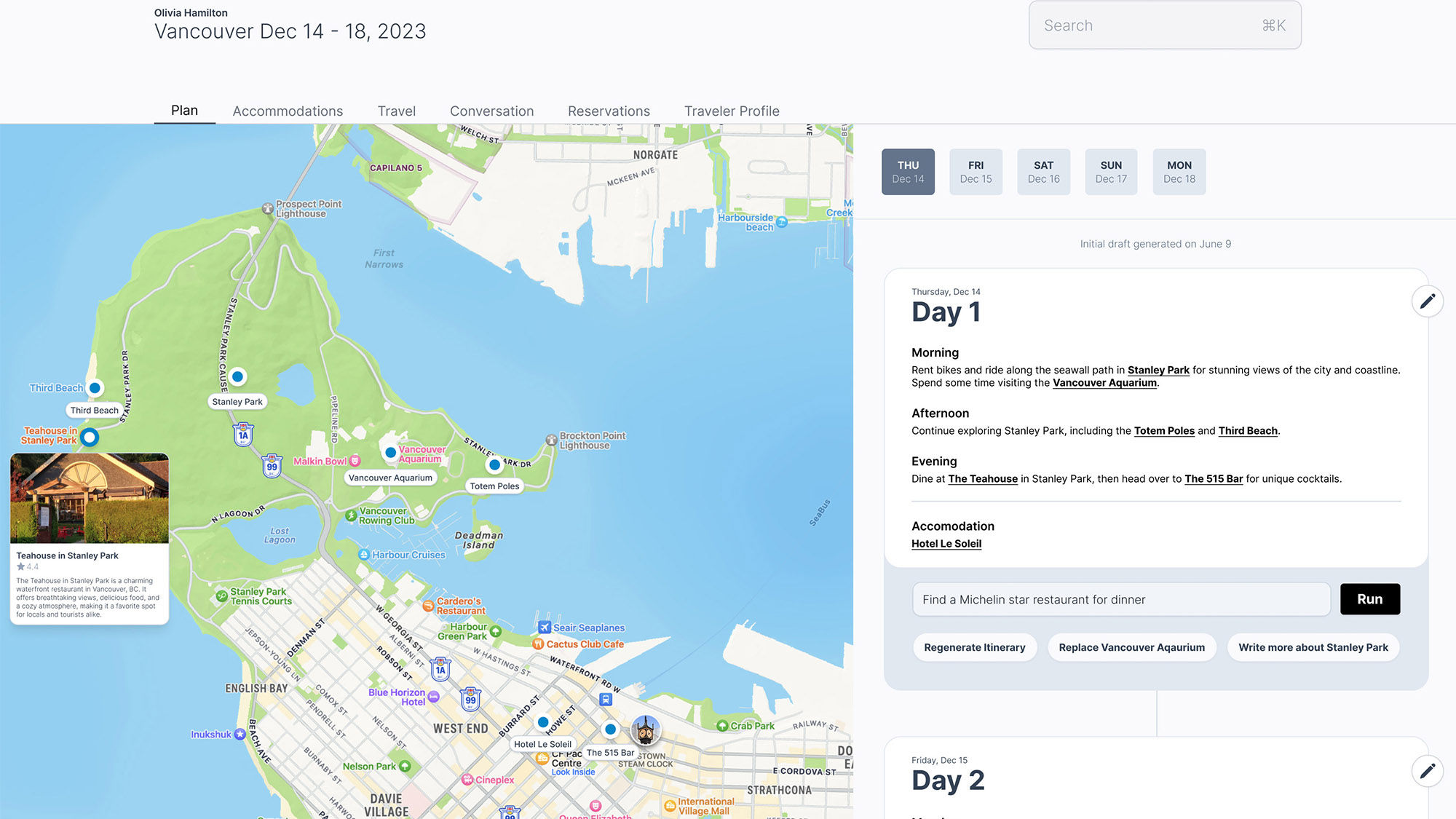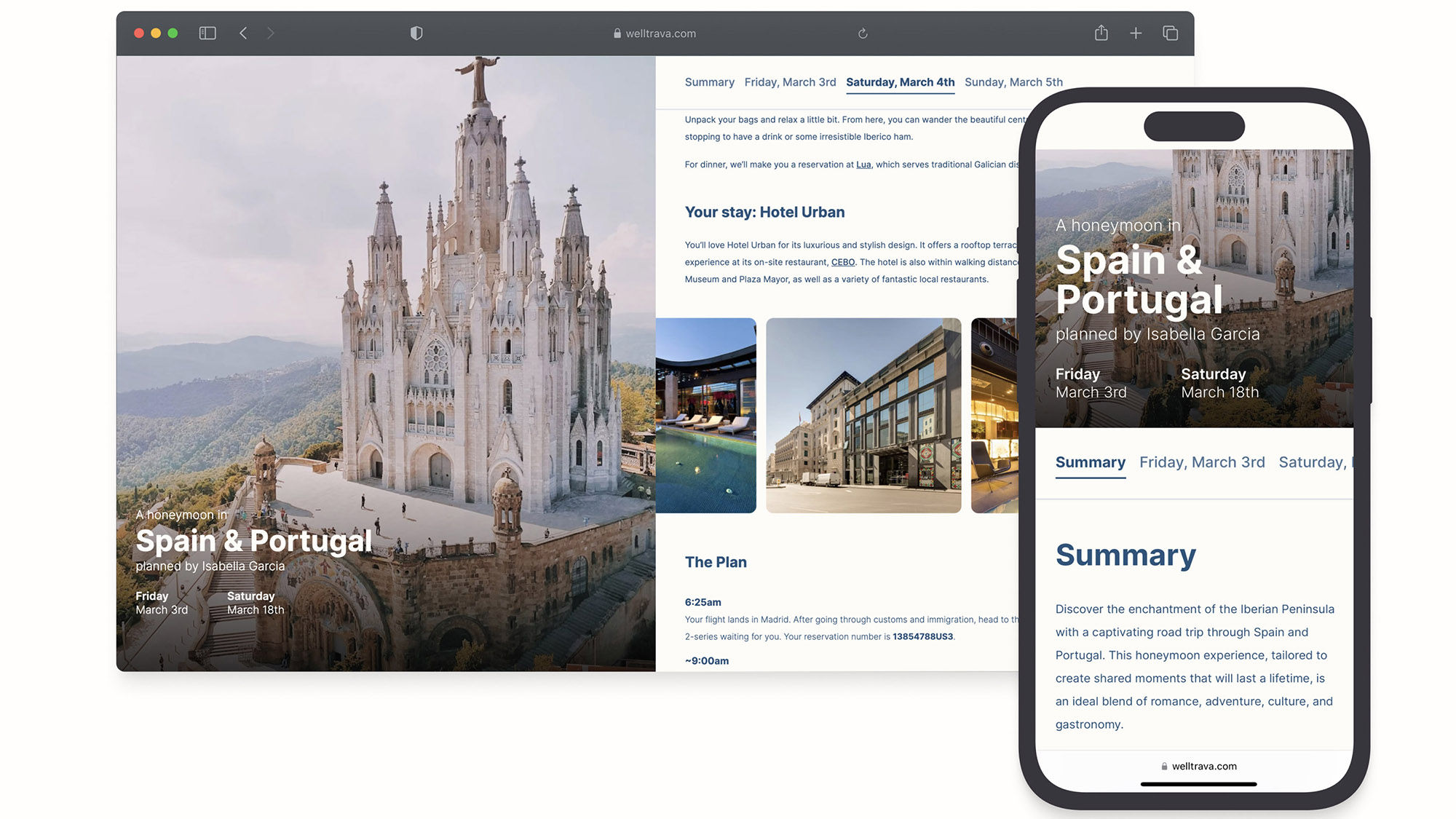
San Francisco-based startup Trava is developing a digital platform for travel advisors that seeks to enhance their productivity in key areas using generative artificial intelligence (AI).
“There are a lot of companies that are now trying to build a chatbot for travel and basically replace the travel agent,” said Trava co-founder and CEO Katka Opocenska. “That is just not going to happen — the quality is not there.”
Instead, she said, Trava is aiming to augment travel advisors across several key areas of trip planning — client onboarding, planning and itinerary-building — with AI that will make their jobs easier and increase their productivity.
Opocenska’s background is in technology, and she had previous roles at Google and Sonder. Co-founders Mike Kitson and Steve Coffey, who are chief technology officer and head of engineering, respectively, bring experience in design and engineering. They were a team at Sonder, building its guest-facing digital app and internal productivity platform.
That app included a concierge experience that guests enjoyed, Opocenska said, and it brought the team closer to things travel advisors do, like recommendations and planning.
They left Sonder to start their own company, and Trava was born.
Initially, the trio was contemplating creating a customer-centric online travel agency but recognized competition would be tough. However, through that process, the team identified planning as an area that could really benefit from an AI boost.
Then, they realized, “there is a whole industry that does that,” Opocenska said. They turned their focus to agent productivity software.
Trava’s areas of focus
The first area in which Trava deploys AI to assist agencies is client onboarding.
To avoid multiple emails back and forth (Opocenska said Trava is skewed toward a younger audience that prefers text-based communication instead of a phone call), Trava deploys AI to ask questions and gather details.
“The end goal here is, once the customer completes this intake, you as a travel advisor really have everything you need,” she said. “You don’t need to go back and ask any additional questions.”
Next, Trava provides AI assistance in trip planning and research. Trava generates an initial, day-by-day proposal based on the advisor’s prompt. Opocenska said Trava will integrate pricing APIs for hotels, so the itinerary includes images and up-to-date pricing.
Advisors can modify anything manually, or by asking the AI assistant to redesign portions.
Finally, Trava generates a final itinerary for clients.
Opocenska said the platform will also include helpful features in its back office, for instance, prompts for the agent to call a hotel before a client’s arrival and ensure extra perks to which they are entitled are in place.
The company has several other ideas to implement with the end goal of improving productivity by 50%.
“We think we can,” Opocenska said. “I think it’s very achievable, while not sacrificing quality.”
Still testing, improving
Trava is still testing its products. It’s not a B2B offering right now, but Opocenska’s end vision is to offer it as software that powers travel agencies.
The company continues to test the platform internally. Opocenska expects a minimum viable product to be ready this year, perhaps as early as this summer. Advisors interested in learning more can get in touch with Trava online.
Similar endeavors
Others have combined travel advisors and AI in the past. Paul English’s Lola, founded in 2015, was one. Lola eventually shifted to corporate travel, then shuttered with a 2021 sale to Capital One.
But Opocenska said Trava’s difference is the technology available today, including generative AI.
“Before, we didn’t have the technology, and now we have it,” she said. “It really is day and night for us.”
Source: Read Full Article












